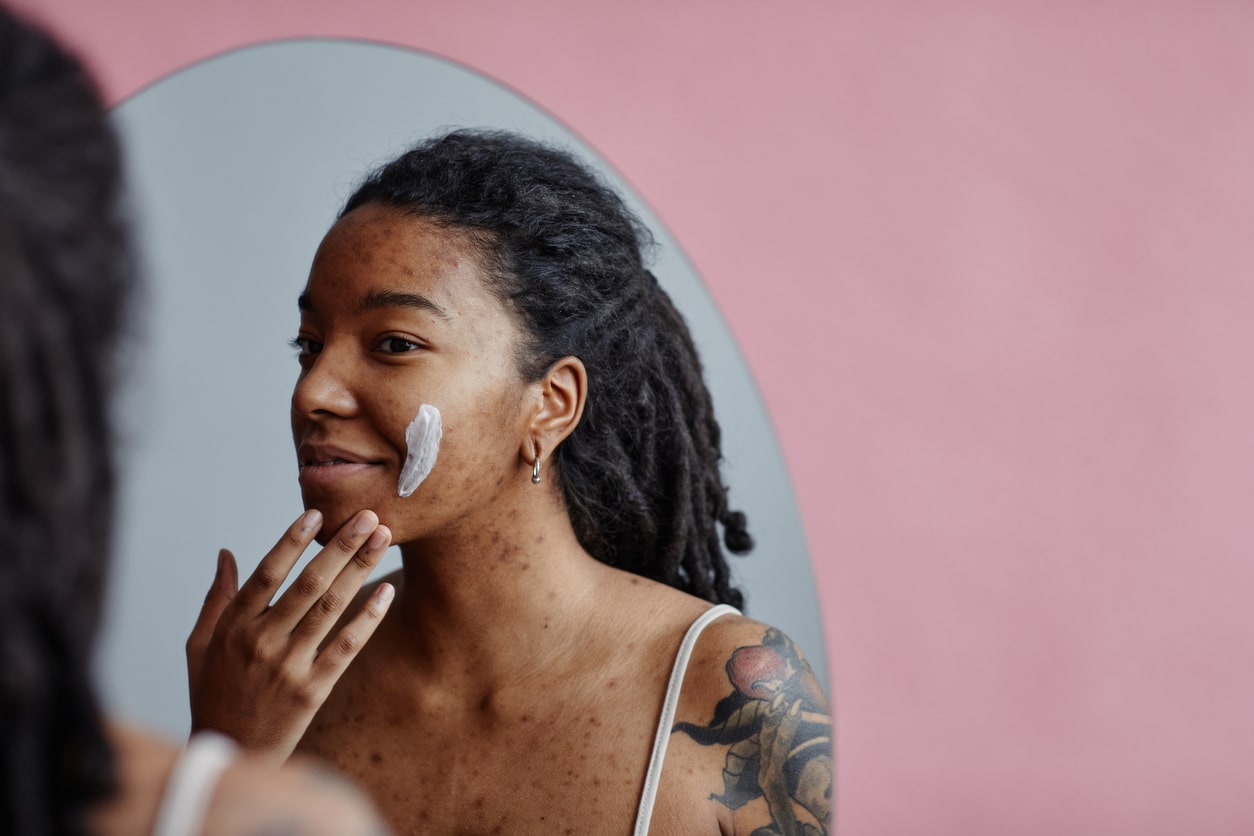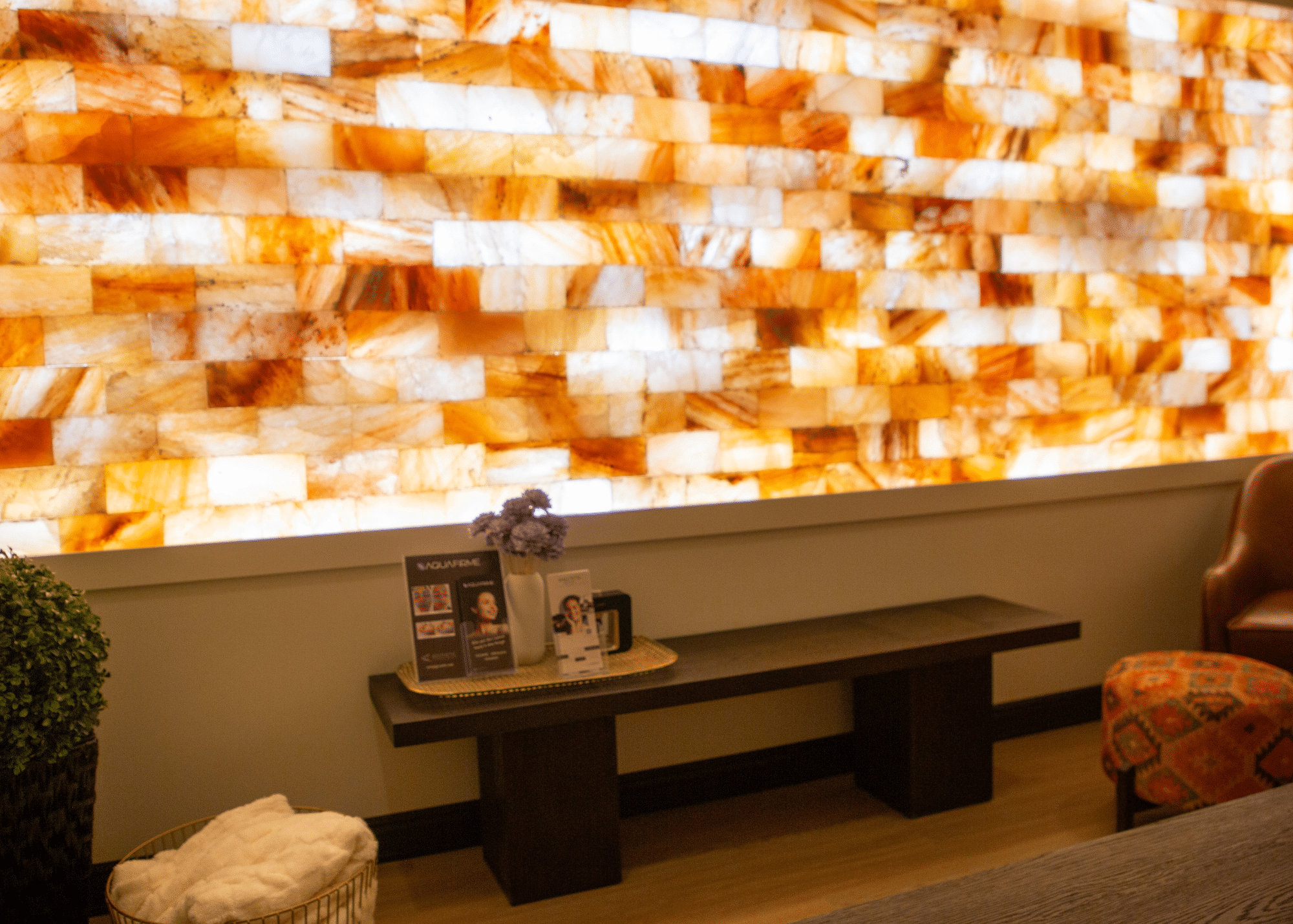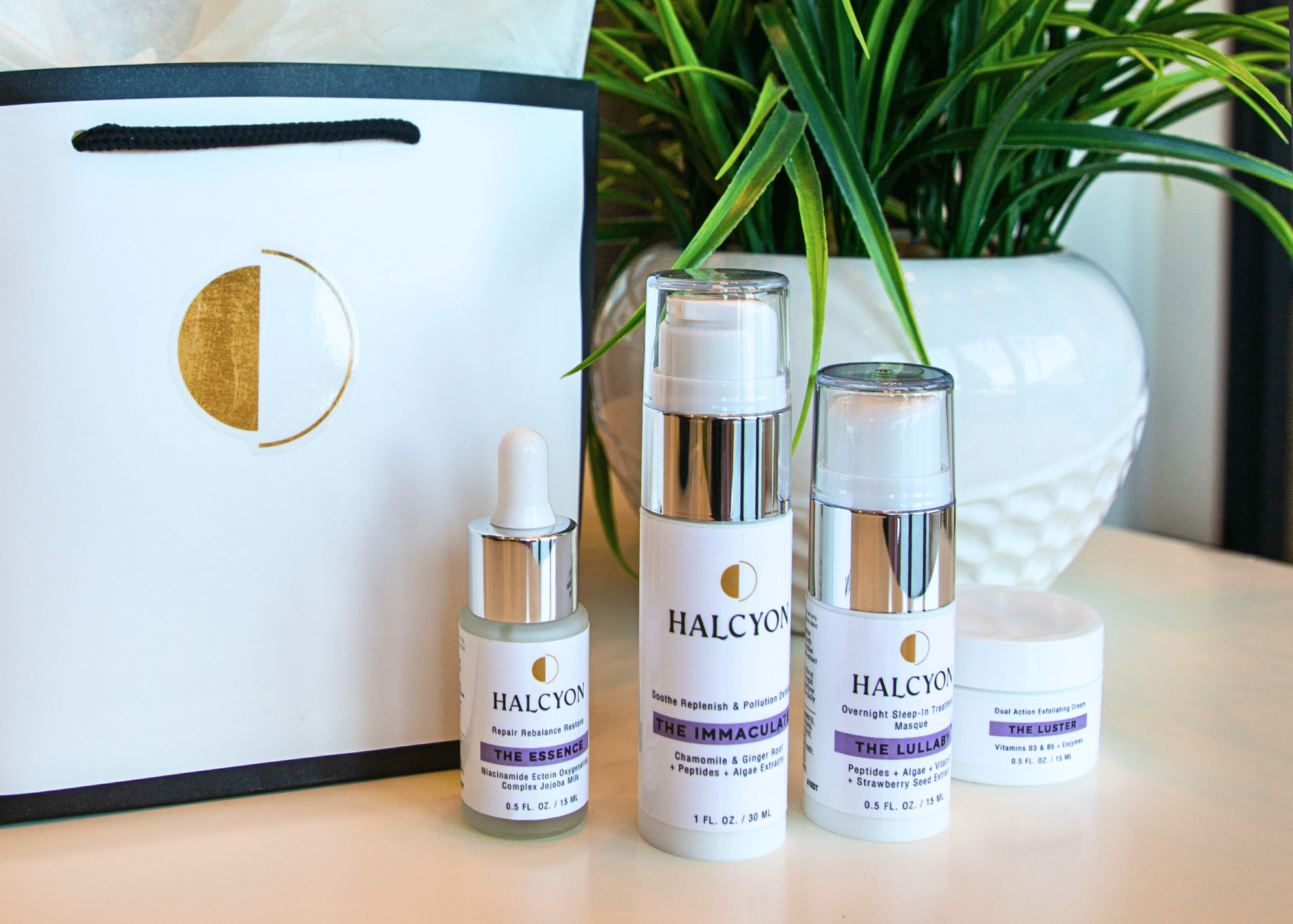Acne is more than just a cosmetic concern. It’s often a deeply personal and emotionally challenging experience. Individuals with acne may struggle with feelings of self-consciousness, social anxiety, and depression. Not to mention the painful physical symptoms.
That’s why June has been designated as Acne Awareness Month, a time dedicated to educating the public about this common skin condition. During this important month, we at Halycon Mind & Body will dispel acne myths and misconceptions, empowering individuals with accurate information.
Debunking Common Myths & Misconceptions About Acne
Myth 1: Acne is Caused by Poor Hygiene
One of the most persistent myths about acne is that it is caused by poor hygiene. While maintaining good hygiene is important for overall skin health, it’s not the sole factor in the development of acne. Acne is a complex condition that is influenced by a variety of factors, including hormonal imbalances, genetics, stress, and certain medications.
Myth 2: Acne is Only a Teenage Problem
Another common misconception is that acne is a problem that only affects teenagers. While acne is more prevalent during adolescence, it can persist or even develop in adulthood. In fact, adult-onset acne is becoming increasingly common, affecting individuals well into their 30s, 40s, and beyond.
Myth 3: Acne is Contagious
Many people believe that acne is a contagious condition that can be spread through physical contact or sharing personal items. This is a myth. Acne is not caused by bacteria that can be transmitted from one person to another. It is a result of a combination of factors, including hormonal changes, excess oil production, and clogged pores.
Myth 4: Diet Has Nothing to Do with Acne
For years, the relationship between diet and acne was a subject of debate. However, recent research has shown that certain dietary factors, such as high-glycemic foods and dairy products, can contribute to the development and severity of acne. While diet alone is not the sole cause of acne, it can play a significant role in managing this skin condition.
Myth 5: Acne Will Go Away on Its Own
It’s a common assumption that acne is a temporary condition that will eventually go away on its own. While some cases of mild acne may improve over time, more severe or persistent forms of acne often require professional treatment. Without proper management, acne can lead to long-term complications, such as scarring and hyperpigmentation.
Understanding the Causes & Triggers of Acne
Acne is a complicated condition that is influenced by a combination of factors, including:
- Hormonal imbalances: Hormonal fluctuations, particularly during puberty, pregnancy, and menopause, can lead to increased oil production and clogged pores.
- Genetics: Individuals with a family history of acne are more likely to develop the condition.
- Stress: High levels of stress can trigger the body’s inflammatory response, exacerbating acne.
- Medications: Certain medications, such as corticosteroids and lithium, can contribute to the development of acne.
- Cosmetic products: Some makeup, skincare, and hair care products can clog pores and worsen acne.
Understanding underlying causes and triggers will create a baseline for developing an effective acne management plan.
Effective Treatment Options for Acne
Fortunately, there are a variety of effective treatment options available for individuals struggling with acne. These include:
- Over-the-Counter Treatments: Topical products containing ingredients like benzoyl peroxide, salicylic acid, and retinoids can help unclog pores and reduce inflammation.
- Prescription Medications: For more severe or persistent acne, healthcare providers may prescribe oral or topical medications, such as antibiotics, retinoids, or hormonal therapies.
- Professional Treatments: Dermatologists and licensed estheticians can provide advanced treatments, such as chemical peels, laser therapy, and extractions, to address acne and improve the appearance of the skin.
- Lifestyle Modifications: Adjusting your diet, managing stress, and maintaining a consistent skincare routine can also significantly help manage acne.
Working closely with a healthcare provider to develop a personalized acne treatment plan that addresses your unique skin needs and concerns is best.
Empowering Individuals with Acne During June
By debunking the top myths and misconceptions surrounding acne, we aim to empower our community with the knowledge they need to make informed decisions about their skin health.
At Halcyon Mind & Body, our team of experienced dermatologists and licensed estheticians is dedicated to helping you achieve clear, healthy skin. Contact us today to schedule a consultation and take the first step towards a brighter, more confident future.
Give Your Skin a Fresh Start: Expert Acne Treatment at Halcyon Mind and Body in Superior, CO
Give your skin the care it deserves with expert acne treatment at Halcyon Mind and Body in Superior, CO. Our tailored approach ensures a fresh start for your skin’s health, offering personalized solutions to address your unique needs.
Let us help you achieve the clear, radiant skin you’ve always wanted. Take the first step towards a fresh start for your skin and book your acne treatment at Halcyon Mind and Body in Superior, CO.
Contact us today to book your appointment!




